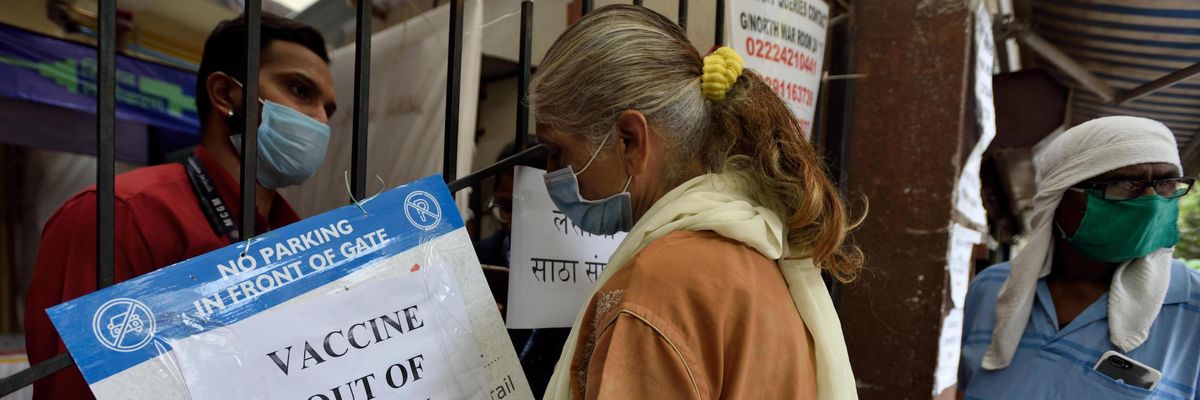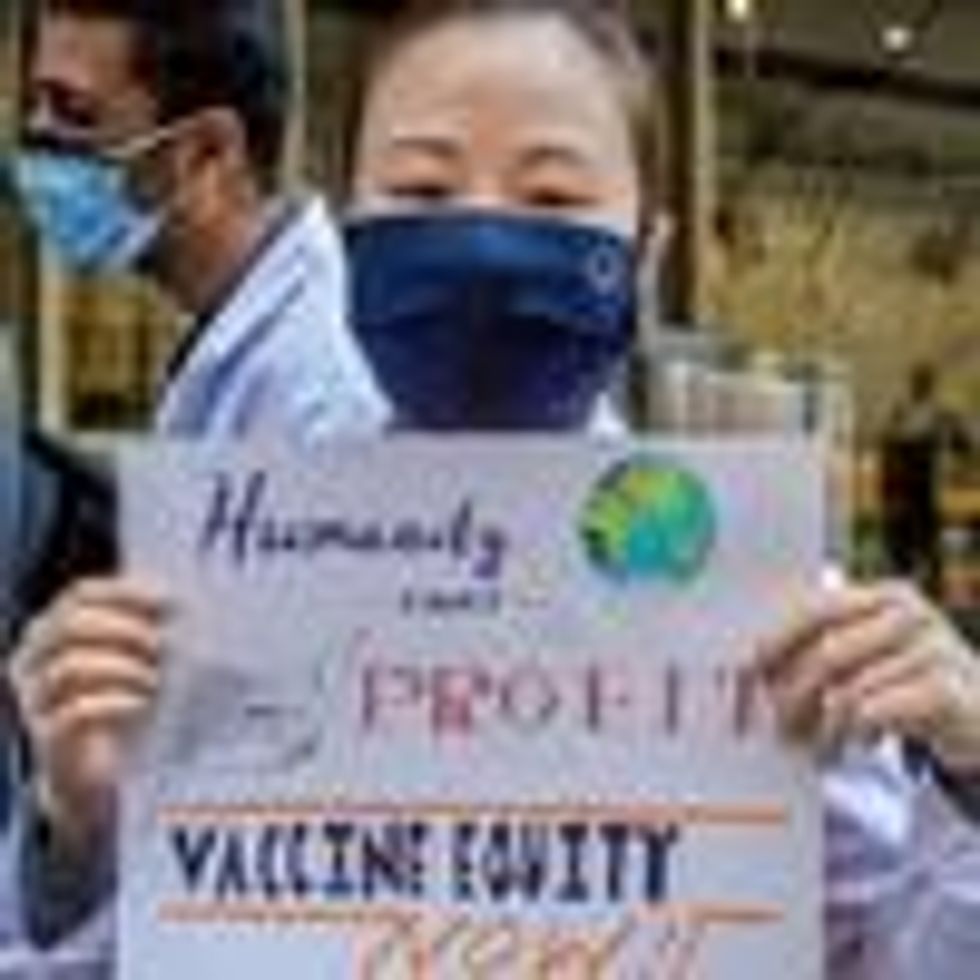Decrying inequities in coronavirus vaccine distribution as both "immoral" and "stupid," United Nations Secretary-General Antonio Guterres on Thursday implored rich countries to live up to their vows to deliver lifesaving shots to billions of vulnerable people in poor nations around the world.
"Vaccine equity will accelerate the end of the pandemic."
"Vaccine inequality is the best ally of the Covid-19 pandemic," Guterres said during a joint press conference with Dr. Tedros Adhanom Ghebreyesus, the head of the World Health Organization. "It is allowing variants to develop and run wild, condemning the world to millions more deaths, and prolonging an economic slowdown that could cost trillions of dollars."
"Yet instead of global coordinated action to get vaccines where they are needed most," Gutteres lamented, "we have seen vaccine hoarding, vaccine nationalism, and vaccine diplomacy."
Just 2.4% of people in low-income countries have received at least one dose of the coronavirus vaccine while rich nations continue to hoard doses and pharmaceutical giants--looking to protect their bottom lines--refuse to share key technology. A recent analysis by the data firm Airfinity found that G7 nations are on track to waste 100 million vaccine doses by the end of 2021, and up to 800 million by mid-2022.
Thanks in part to such hoarding, just 15 of Africa's 54 countries were able to vaccinate at least 10% of their populations by the end of September, a modest target set by the WHO.
During his remarks to the media on Thursday, Guterres noted that "G20 countries have frequently spoken of their desire to get the world vaccinated."
"I urge all global stakeholders to step up, mobilize their resources, and turn this strategy into a reality," he added.
Failure to take action in line with urgent global needs, Guterres warned, leaves an opening for vaccine-resistant coronavirus mutations to emerge and undercut global progress against the pandemic, which has killed 4.8 million people worldwide and counting.
"There will be not the Delta, it will be another variant that will be able to resist vaccines, and all the vaccination effort made in developed countries to vaccinate the whole of the population, one, two or three times--all that effort will fall apart," Guterres said. "And these people will not be protected."
Related Content
Experts Warn Failure to Rapidly 'Vaccinate the World' Creates Dangerous Opening for Covid-19 Mutations
Jake Johnson
In order to bolster global vaccine production and close the massive inoculation gap between rich and poor nations, Guterres and Tedros on Thursday outlined steps that wealthy countries, vaccine makers, charitable organizations, civil society groups, and others must take in the near future.
For instance, the U.N. and WHO urged nations that currently have high vaccine coverage to:
- Swap vaccine delivery schedules with COVAX and [the African Vaccine Acquisition Trust] to enhance coverage in countries in need;
- Fulfill and accelerate vaccine dose-sharing and donation commitments to COVAX in the near term, for those with existing pledges; and
- Establish new dose-sharing commitments to facilitate progress toward the 70% coverage target in every country.
"More than 6.4 billion vaccine doses have now been administered globally, and almost one-third of the world's population is fully vaccinated against Covid-19. But those numbers mask a horrifying inequity," Tedros said during Thursday's press conference. "High- and upper-middle income countries have used 75% of all vaccines produced so far. Low-income countries have received less than half of one percent of the world's vaccines."
"We have the tools to bring the pandemic under control, if we use them properly and share them fairly," Tedros added. "Vaccine equity will accelerate the end of the pandemic."


